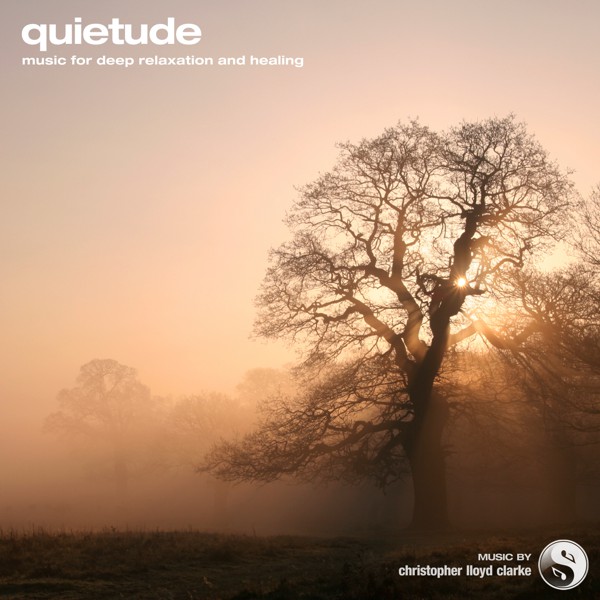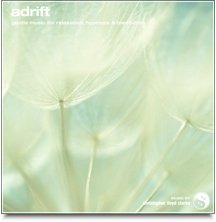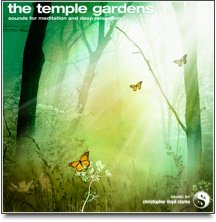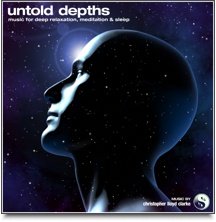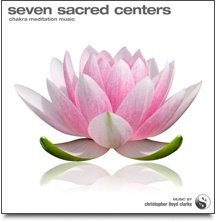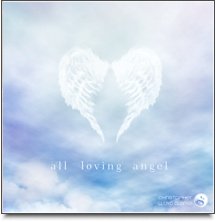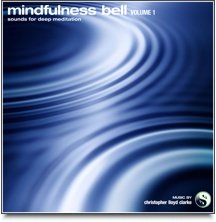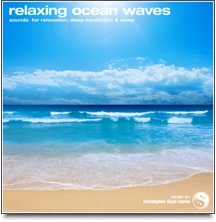Music for Meditation & Relaxation
Quietude
Quietude is food for the soul. It soothes and relaxes you right down to your very core. This beautiful meditation music makes it easy to settle into a serene and content state of mind, an effortless journey into deep relaxation. It also encourages "bio-rhythmic relaxation" by gently reducing your heart rate and breathing rate. You may even feel a sense of euphoria as your nervous system relaxes and your body increases its production of endorphins.
More information...
Duration: 60 minutes of continuous music
Artist: Christopher Lloyd Clarke
Delivery: Immediate MP3 Download - Worldwide
Price: $ 9.95
All prices are in Australian Dollars
Handy currency converter
Please note: This music is for personal use only. For a royalty free meditation music license please visit Enlightened Audio.
A few words about this meditation music
Electric piano and a delicate flute take center stage in Quietude, mingling with each other and wandering about in a carefree, light-hearted way. These two instruments float above a foundation of deeper sounds; warm, sustained tones that encourage feelings of comfort and safety, and a heart-beat tempo that gradually slows down over time.
A few words from the composer, Christopher Lloyd Clarke
A psychologist and healer named Sky wrote to me in late 2013 asking if I had any music that would "support a breathing pattern". Sky wanted her students to follow a pattern of inhalation - 4 counts, and exhalation – 6 counts.
I thought this was a really interesting request and it got me thinking about how I could create "breathing music".
My first thought was that the music would need a discernable tempo that the listener could follow in their mind without effort - a gentle sense of rhythm to keep their breath moving.
Further contemplation of tempo and rhythm got me thinking about human biorhythms, or "biological rhythms"...
- Biorhythm
“A recurring cycle in the physiology or functioning of an organism, such as the daily cycle of sleeping and waking.”
Your heart rate and your breathing rate are two more examples of biorhythms, and these are the ones I am most interested in when it comes to relaxation music.
- Your heart rate is your circulatory biorhythm
- Your breathing rate is your respiratory biorhythm
It will come as no surprise to you that the tempo of a piece of music can have a very powerful effect on your biorhythms. We humans have a tendency to synchronize, ‘attune’ or 'entrain' ourselves to rhythmic stimuli like music. We tap our feet to the beat, we want to dance and our mood can quickly change. Music can make all this happen in seconds – it really is a powerful tool for effecting rapid changes on an emotional, psychological AND physical level.
Brainwave entrainment music also relies on the principle of entrainment to induce a state of relaxation. But whereas brainwave entrainment music acts directly upon your brainwaves to induce a state of relaxation, tempo based relaxation music like Quietude focuses on relaxing your physiology rather than your brainwave activity. It does this by encouraging your breathing and heart rate to gradually slow down.
The average resting heart rate for an adult is around 70-75 beats per minute (bpm). Stress will often cause an increase in heart rate, constricted breathing and a faster breathing rate. Conversely, in a relaxed state your heart rate will slow down and you will breathe more slowly and more deeply.
Listening to gentle music with a tempo of around 60 bpm is an effective way to encourage one’s breathing and heart rate to relax. This is exactly where Quietude begins. It starts with a tempo of 60 beats per minute - a nice, gentle pace that encourages your biorhythms to start slowing down.
Think of it as “biological deceleration”.
During the first 10 minutes of this music, the tempo gradually slows down from 60 bpm to 52 bpm. You'll barely notice it happening on a conscious level but the relaxation effect is undeniable. Between the 10 and 15 minute mark, it slows down a little more – down to 50 bpm. For those who listen even longer, the tempo drops one more time between the 45 and 50 minute mark – down to 48 bpm. A change of 2 bpm might not sound like much, but you sure do feel it.
Other changes to the music also take place as time passes. Can you hear that deep, rhythmic tone pumping away in the preview? That’s the ‘heartbeat’ of the music. Over time this beat is slightly reduced in volume and softened in tonality. It stays strong enough to keep reinforcing the relaxation effect, but becomes less obvious to the ear. In the hour long version, the final 10 minutes is devoid of any flutes or pianos. The music becomes more fluid and softer in that time, allowing for a final, super deep phase of relaxation. For many listeners this will be a time of sleep.
The music itself evolves slowly throughout the entire 60 minute performance, but never strays too far from the theme you hear in the preview track.
Should you choose to breathe in time with the music – and you can choose any inhalation/exhalation count that suits you – your breathing will gradually slow and deepen as the tempo of the music changes over time.
Of course, you don’t HAVE to time your breathing with the music. Just listening in a casual manner will still give you a strong sense of slowing down and a deepening feeling of relaxation. It’s quite a lovely experience. Your heart rate and breathing will slow, your blood pressure will be reduced and your brainwaves will change as your entire nervous system attunes and responds to the music.
